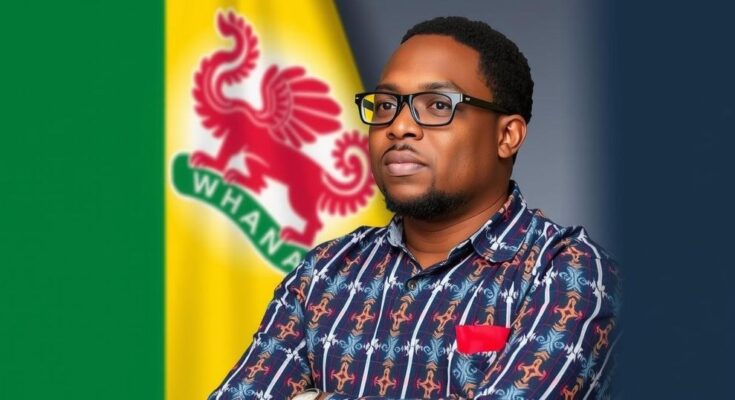Prince Kofi Amoabeng has revealed his aspiration to become the President of Ghana, emphasizing the need for democratic reforms to address the country’s governance issues. He argues that the current system, run by political parties, breeds corruption and debt. Amoabeng suggests alternative electoral processes and calls for an environment that supports business growth for economic development.
Prince Kofi Amoabeng, the founder of the defunct UT Bank, has candidly expressed his aspiration to become the President of Ghana, citing it as his most significant ambition. In a recent interview with Konnected Minds, he emphasized the need for a change in the country’s governance system, arguing that while he supports democracy, the current system is inadequate to address Ghana’s unique challenges. According to Amoabeng, the reliance on political parties has led to corruption and a burden of debt, suggesting that reforms are necessary to enhance representational governance. He proposes that rather than a universal vote, a referendum could be employed to determine who should vote for the presidency. Additionally, he called on the government to foster an environment conducive to business growth, asserting that a robust GDP is essential for national development.
This article centers around Kofi Amoabeng’s statements regarding governance, democracy, and economic development in Ghana. As a prominent figure, previously leading UT Bank, Amoabeng’s opinions regarding political structures inform the ongoing discourse on improving Ghana’s leadership dynamics. His views advocate for a reexamination of democratic practices, particularly concerning electoral processes and the necessary infrastructure to support economic growth through business leadership.
In summary, Prince Kofi Amoabeng’s aspirations reflect a deep concern for the state of Ghana’s governance and economic development. His proposals for reforming the democratic system and promoting a better business environment underscore the challenges faced by the nation. By advocating for structural changes, Amoabeng aims to influence the future political landscape in Ghana, aspiring to one day contribute to it as president.
Original Source: www.ghanaweb.com




